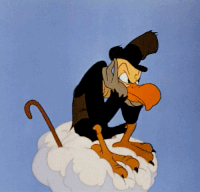Dickie Moore
Kyle already covered a lot of this, but I was already planning this post, so here it is:
Reasons Moore should be added soon:
1. A two-time Art Ross winner with a very complete game.
His NHL100 profile says it all: "He came by the nickname "Digging Dickie" honestly, his tremendous work in the corners done with disregard for the peril that often awaited him. And it was this bulldog tenacity that made Moore one of the unsung superstars of his day, a brilliant two-way forward who was a key member of six Stanley Cup champions during his time in Montreal (1951-63) and winner of the Art Ross Trophy in 1957-58 and 1958-59 as the NHL's leading scorer."
2. Ranked very high by the 1998 THN Top 100 list.
That list has its problems, but it is the best source we have for what the hockey establishment thought of players they had seen play from approximately 1950-1990. Moore ranked #32. Compared to other Canadiens from their dynasties, Maurice Richard was #5, Harvey #6, Beliveau #7, Lafleur #11, Plante #13, Robinson #25, Dryden #26, Henri Richard #30, Geoffrion #42
List of 100 greatest NHL players by The Hockey News - Simple English Wikipedia, the free encyclopedia
3. Excellent playoff record
Over the course of Moore's career with the Canadiens (1952-1963), he ranked 3rd in leaguewide playoff scoring behind Bernard Geoffrion and Gordie Howe:
Player Season Finder | Hockey-Reference.com
Moore was 2nd behind Geoffrion on the 1956-1960 dynasty in playoff points. 3rd in playoff PPG behind Geoffrion and Beliveau (who missed playoff games in the span):
Player Season Finder | Hockey-Reference.com
A 37 year old Moore led the 1967-68 St Louis Blues in playoff scoring as they reached the Cup finals by winning the playoffs in the Expansion Division:
1967-68 St. Louis Blues Roster and Statistics | Hockey-Reference.com
Reasons Moore should not be added yet:
1. For Moore's first Art Ross, he was outscored by his own center, Henri Richard, at even strength
1957-58. Moore: 84 points, 49 ES points. H Richard: 80 points, 60 ES points
2. Weak Hart record, even as he won Art Rosses.
1957-58
HART: (315/324, 138-155)
1. Gordie Howe, Det RW 105 (47-58)
2. Andy Bathgate, NYR RW 70 (11-59)
3. Doug Harvey, Mtl D 41 (27-14)
4. Henri Richard, Mtl C 40 (30-10)
5. Glenn Hall, Chi G 37 (23-14)
6. Bill Gadsby, NYR D 9
7. Camille Henry, NYR C 6
8. Dickie Moore, Mtl LW 4
9. Fleming Mackell, Bos C 3
10. seven players with one point
1958-59
HART: (324/324, 135-139)
1. Andy Bathgate, NYR RW 133 (67-66)
2. Gordie Howe, Det RW 60 (36-24)
3. Jean Beliveau, Mtl C 36 (0-36)
4. Terry Sawchuk, Det G 34 (31-3)
5. Dickie Moore, Mtl LW 11 (1-10)
6. Tod Sloan, Chi C 10
T7. Ed Litzenberger, Chi RW 7
T7. Ted Lindsay, Chi LW 7
9. Don McKenney, Bos C 6
10. Jacques Plante, Mtl G 5
T11. Glenn Hall, Chi G 3
T11. Doug Harvey, Mtl D 3
T13. Bernie Geoffrion, Mtl RW 2
T13. Tom Johnson, Mtl D 2
T13. Doug Harvey, Mtl D 2
T16. Doug Mohns, Bos D/LW 1
T16. Marcel Pronovost, Det D 1
Note that a fellow Canadien (H Richard, then Beliveau) finished 2nd to Moore in scoring in each of his Art Ross years, and it was the teammate who finished just behind Moore in scoring to finish well above him in Hart voting each year.
In 1957-58, H Richard clearly received credit for driving the line at even strength. Did Beliveau receive more credit than Moore in 1958-59 for driving the PP unit?
3. Limited number of strong regular seasons, and they correlate strongly to playing on the best team of all-time.
Top 20 point finishes: 14th (1956), 8th (1957), 1st (1958), 1st (1959), 11th (1960), 8th (1961), 19th (1963)
Moore's 1st finish as a top 20 scorer wasn't until 1955-56 at the age of 25. 1955-56 also just happened to be Beliveau's really huge season.
Then just 8 years later, Moore would retire (due to injuries) for the first time at the age of 32. He came back twice (first with Toronto, then with St. Louis), but his only notable accomplishment outside Montreal was his playoff performance in St. Louis in 1967.
4. NOT ranked as high by Red Fisher.
The great Montreal journalist Red Fisher ranked the top (non-goalie) Canadiens he had ever seen play.
Here's his list:
1. Jean Beliveau
2. Maurice Richard
3. Guy Lafleur
4. Doug Harvey
5. Henri Richard
6. Larry Robinson
7. Bernie Geoffrion
8. Bob Gainey
9. Dickie Moore
10. Serge Savard

